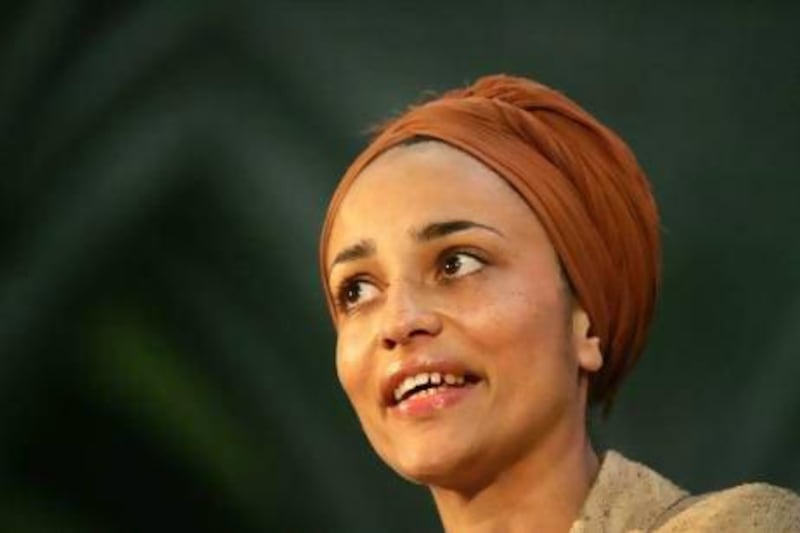In 1983, the literary magazine Granta announced its first list of what it considered to be the 20 most promising young British novelists. It included writers who would go on to be the heavyweights of the fiction world - Martin Amis, William Boyd, Julian Barnes, Kazuo Ishiguro, Ian McEwan and Salman Rushdie.
Announced once every 10 years, Granta's Best of Young British Novelists has become a fascinating and important survey of new writing, and the 2013 list announced last week is the most international to date, featuring writers with connections to India (Sunjeev Sahota), Pakistan (Kamila Shamsie), Somalia (Nadifa Mohamed), Ghana (Taiye Selasi), the US (Benjamin Markovits), China (Xiaolu Guo) and Bangladesh (Tahmima Anam).
How the authors were chosen
Granta's editor John Freeman last year assembled a group of judges - including the Sri Lankan-born novelist Romesh Gunesekera - to compile a list of 20 authors from the 150 submissions. The only criteria was that the contenders had to be 40 years of age or below, hold a British passport and submit a new story or part of a new novel for print.
"We have writers from all over the world but who call Britain home, and the range of styles and subjects is extraordinary," Freeman explains. "But it wasn't about getting the 'right' representation; it was about a list of writers we felt we couldn't live without. They're beautiful, strange, sublime and different - we wanted writers who can move you, can turn a memorable phrase, can make you laugh, or can refract history into storytelling. These authors really did enthral us."
Who made it to the final 20?
There are those who are well known - such as Zadie Smith and Adam Thirlwell (both were on the 2003 list) and the Booker-shortlisted Sarah Hall. Kamila Shamsie, too, has won prizes in Pakistan. And readers of The National may well recall with some pleasure Tahmima Anam's last book, The Good Muslim.
However, it's pleasing to note that some less well-established names made it, too. Taiye Selasi's debut novel Ghana Must Go was only published last month, for example, and Ours Are The Streets by Sunjeev Sahota, about a young British Muslim, certainly deserves the publicity this recognition will give him.
For Granta's online editor, Ted Hodgkinson, one of the main functions of Best of Young British Novelists is "bringing to light people who should have had more exposure".
"You can do that by reading about them on our website," he says. "When you do, you'll notice we avoid calling them the next Amis or Ishiguro: this list celebrates them for what they are, not who they're like."
What the authors think about the Granta list
Steven Hall won plenty of awards and praise for his only book to date, The Raw Shark Texts (2007), which has since been translated into 29 languages around the world. But it's the Granta recognition that has really excited him.
"I remember sitting down well before writing the first book and wondering whether I'd still be eligible in 2013," he jokes.
"It's wonderful to be involved. And it's so different to a prize where one person wins. The 'competition' ends when the list is announced, so it's like a longlist that doesn't have to be whittled down. I think that's very healthy."
Hall has noticed the broad range of global concerns the Granta list uncovers - indeed, his extract is set both in Britain and the US.
"These days, it would be strange to have a list that is very narrowly focused on what it's like to live in Britain," he says. "I really like the purity of a list which just says 'this is the best' and leaves everything else open."
What it means for the world
As befits a selection which is so global in its scope, Granta and the British Council are taking the shortlisted authors on a world tour this year, stopping in Brazil, Canada, India, Russia, Kenya and Qatar.
They certainly won't be exporting a narrow view of Britain: the snapshot from Tahmima Anam's forthcoming novel, Shipbreaker, is set in Dubai amid migrant construction workers and cleaners, for example.
"What I notice is that most of us are immigrants to cities in some way," says the Chinese writer Xiaolu Guo, who moved from China to England four years back.
"We have one home where we are now, and other homes in our imaginations elsewhere. That brings with it a deep sense of displacement. Writing places me back in a place where, in a physical life, I could no longer live or, perhaps, never will return to. In that sense, writing is like a home - it's where you find your peace."
For the full list of authors, downloads and details of the tour dates, visit www.granta.com






